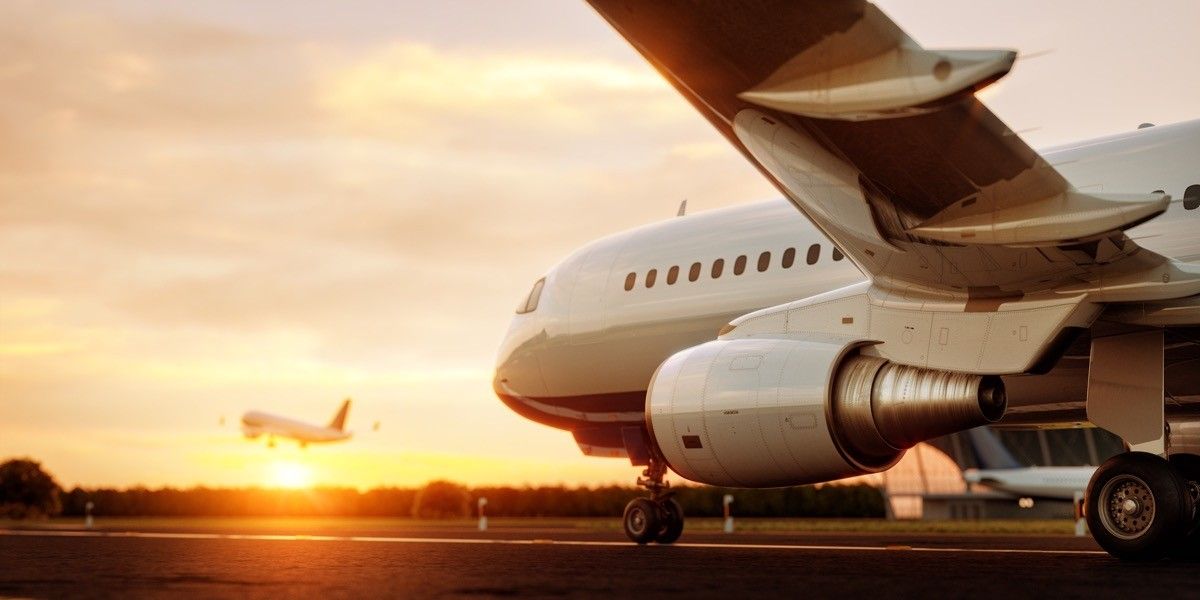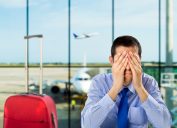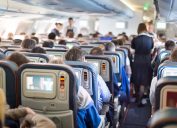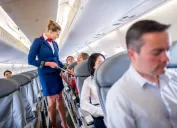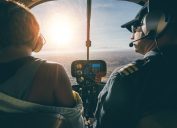17 Horrifying Myths About Planes That Are 100 Percent True
You never know what's hiding in that overhead bin...
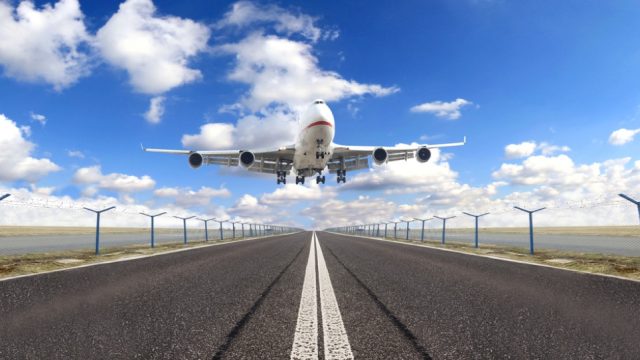
By and large, air travel is safer, faster, and in general, much better than ever, but that doesn't mean it's perfect. In fact, airplanes have a bit of a dark side to them. Some of the pretty scary details are common knowledge for frequent flyers, like the fact that certain parts of the cabins are outrageously germy. But others might come as a bit of a shock—for instance, you might not realize that you could be flying with corpses in the cargo hold. (Eek!) Here, flight attendants, pilots, and aviation experts reveal all the most chilling facts about planes.
1
The food is extremely unhealthy.
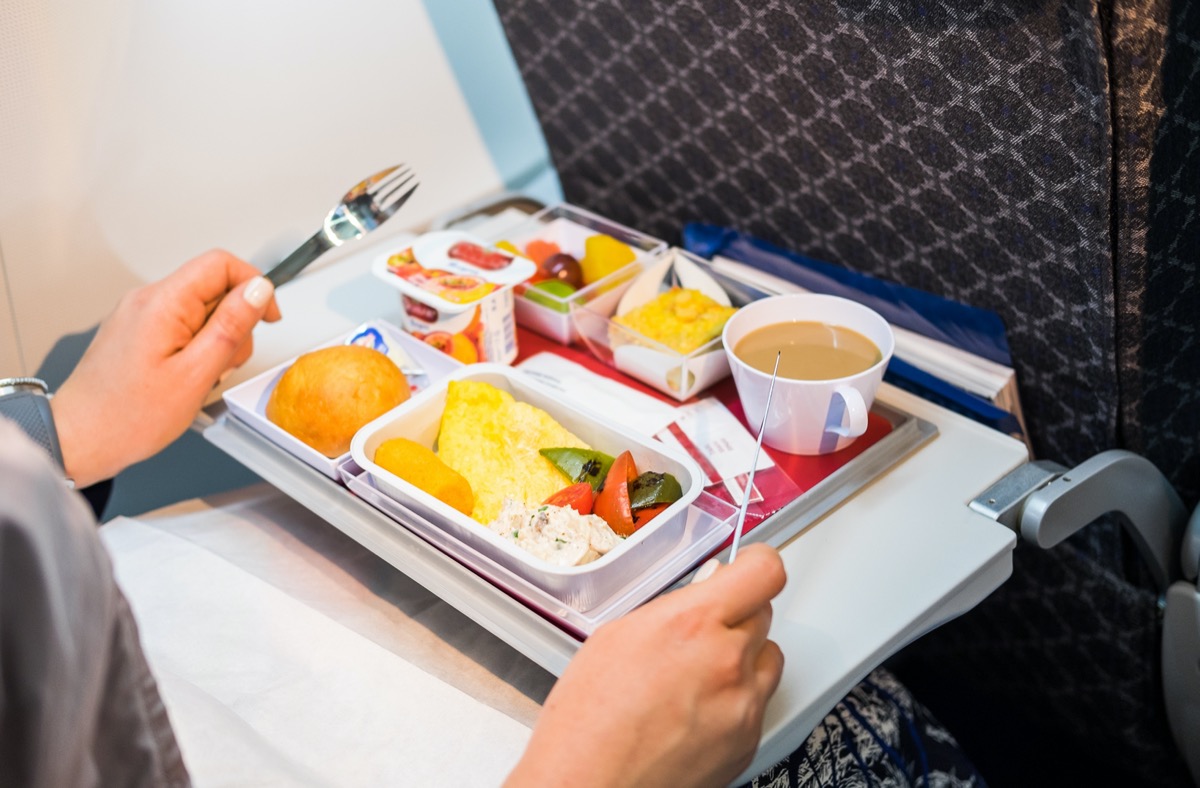
Sure, the taste of your in-flight meal has definitely improved over the years (you can thank new tech—and partnerships with celebrity chefs, particularly for business-class menus), but it's actually not very good for you nutrition-wise. According to a flight attendant on Reddit, plane food is all "salt, sugar, fat, and simple carb content."
Beyond that, the facilities where catering is prepped are not held to the same Food and Drug Administration (FDA) standards as restaurants—they only have to be checked every three to five years, and violations don't necessarily lead to closures. A recent NBC exposé revealed that "In the past four years, FDA inspectors have found condensation dripping onto food, fans blowing dust on food, thermometers off by as much as 25 degrees, raw meat contaminating cooked meat, moldy bread, live birds and insects, as well as [rodent droppings] and more at airline catering facilities, according to more than 1,000 pages of inspection reports obtained by public records request."
2
Your seat selection really does matter in terms of surviving a plane crash.
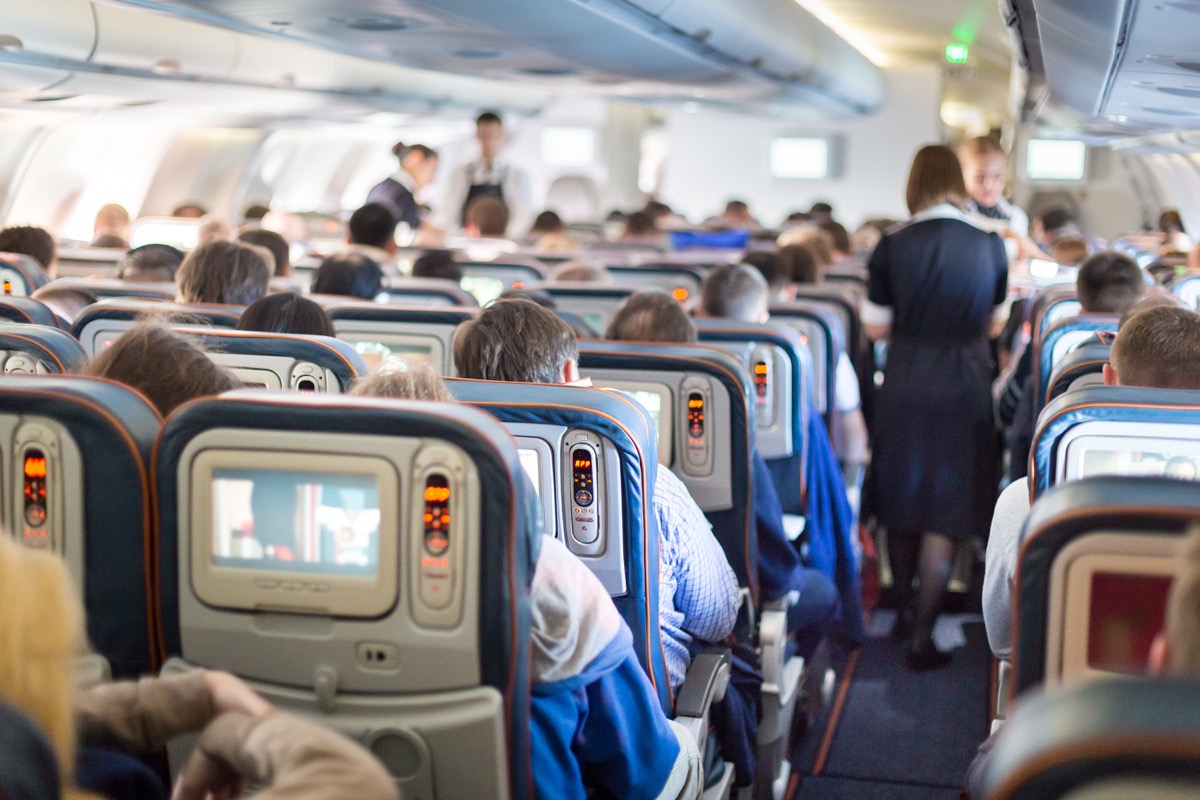
A quick Google search about the safest seats on a plane will come up with all sorts of results. In one study of plane crash data by Popular Mechanics, it was determined that passengers in the back of the plane are 40 percent more likely to survive than their companions in the front (so pass on that upgrade if you're a nervous flyer). But ultimately, you're going to want to sit as close to the exit as possible for the best chance of survival—after a plane crash, you've got about 90 seconds to get out before the fuel tanks might explode. Given that so many passengers waste precious time and block the aisles trying to take their bags off a plane in an emergency, you've got the best odds of getting out fast.
3
There might be broken parts on the plane.
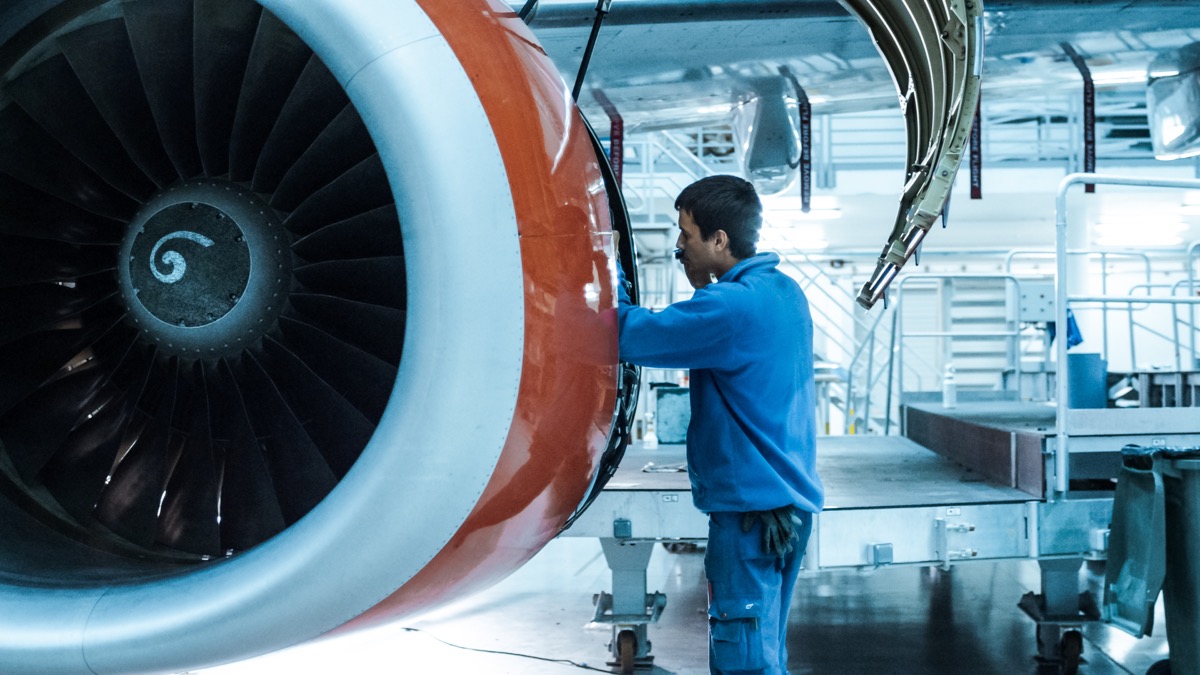
Airplanes are allowed to fly with broken parts, but only if they are unnecessary to the safe operation of the plane. There's a document called the Minimum Equipment List (MEL) that outlines exactly what equipment is mandatory for a safe flight. For instance, if your windshield wiper isn't working, that's perfectly all right—unless there's precipitation within five miles of your departure or arrival airport.
4
The takeoff and landing are the most dangerous.
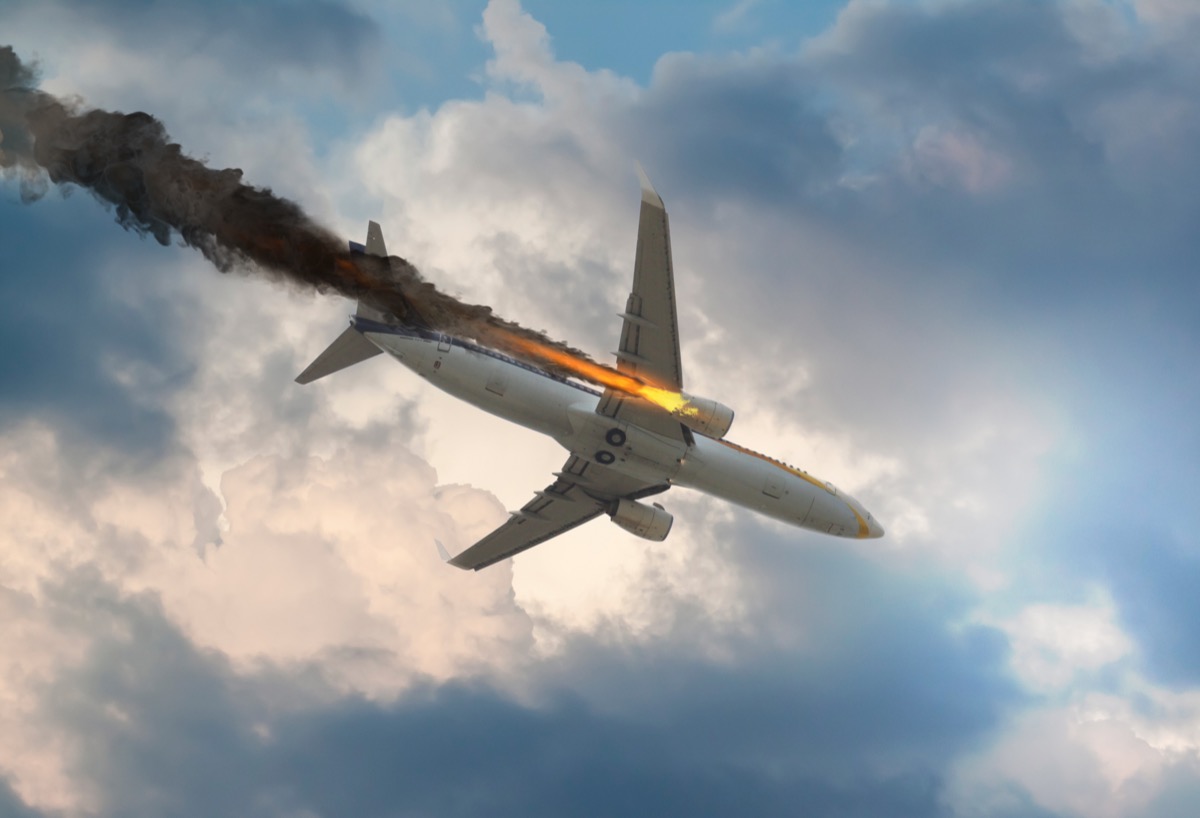
Fact: 80 percent of plane crashes happen in the three minutes after takeoff or the eight minutes before landing. So buckle up and pay attention during that time, just in case anything goes awry. But do keep in mind, it's incredibly safe to fly, and even if you were involved in an accident, you've got about a 95 percent chance of survival.
5
If the person next to you passes away, you might be stuck next to a dead body the whole flight.
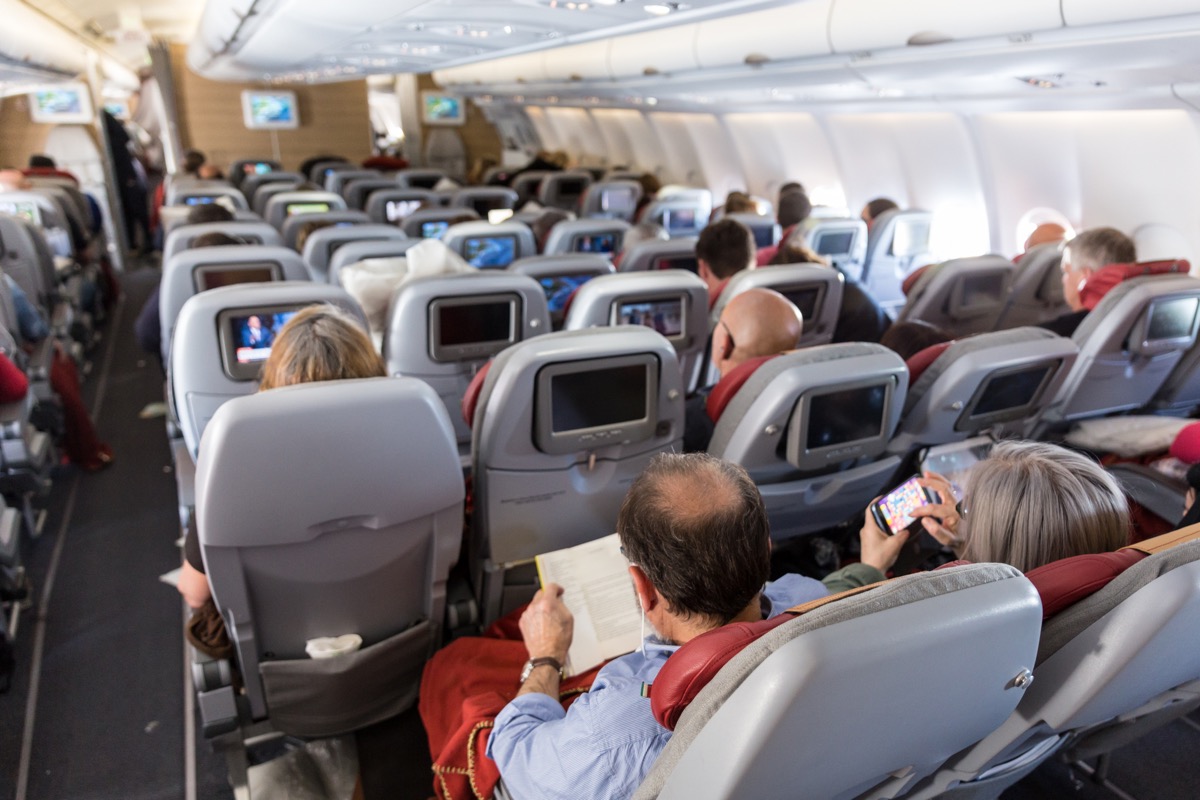
The International Air Transport Association doesn't actually have any formal rules to follow when a passenger dies mid-flight. There are suggestions, however, including putting the deceased back in their seat if the flight is full. Unlike cruise ships, which have morgues, space is very limited for dead bodies in cabins. Talk about a real-life nightmare.
6
There could be corpses in the cargo hold and cremated remains in the overhead bin.
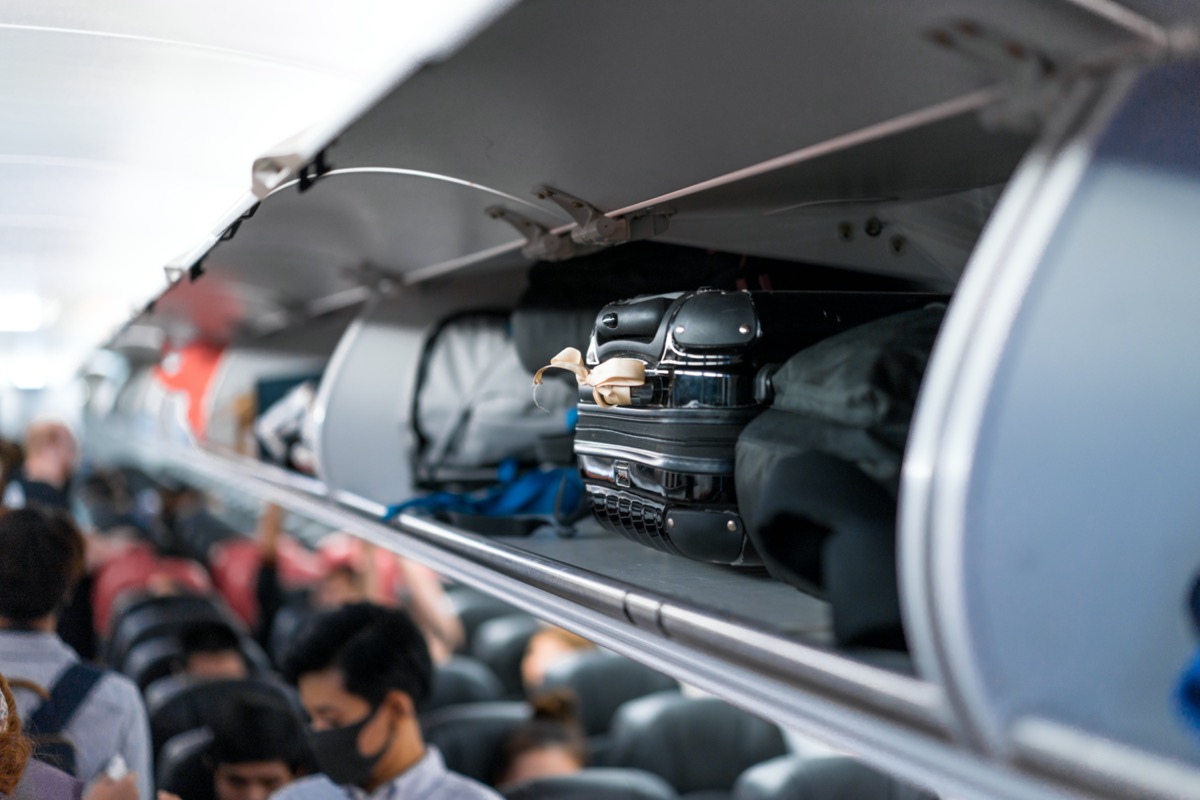
There is, however, plenty of space in the cargo hold—and planes sometimes do transport dead bodies down there. Passengers are also allowed to bring cremated remains into the cabin with them, as long as they follow specific rules regarding containment.
7
The pilots might be sleeping on the job.
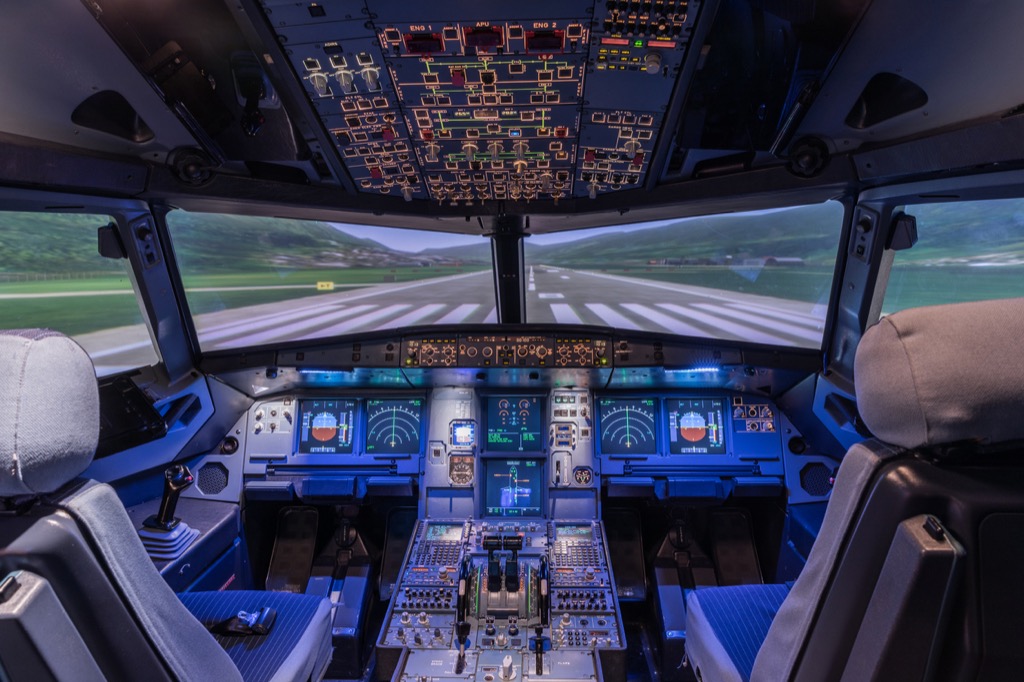
Pilots, like many office workers, are often exhausted, but in a pilot's case, a mistake made due to fatigue could be fatal. So sometimes pilots will take a little catnap while in the cockpit—if it's allowed. The rules are set by different countries: the United States forbids it, for instance, while Canada allows controlled naps that adhere to a strict set of restrictions. But on long-haul flights, there are multiple crews that'll take shifts, with the off-duty ones retreating to a secret cabin where they can sleep.
8
The cabin crew silently judges you the second you walk on the plane.
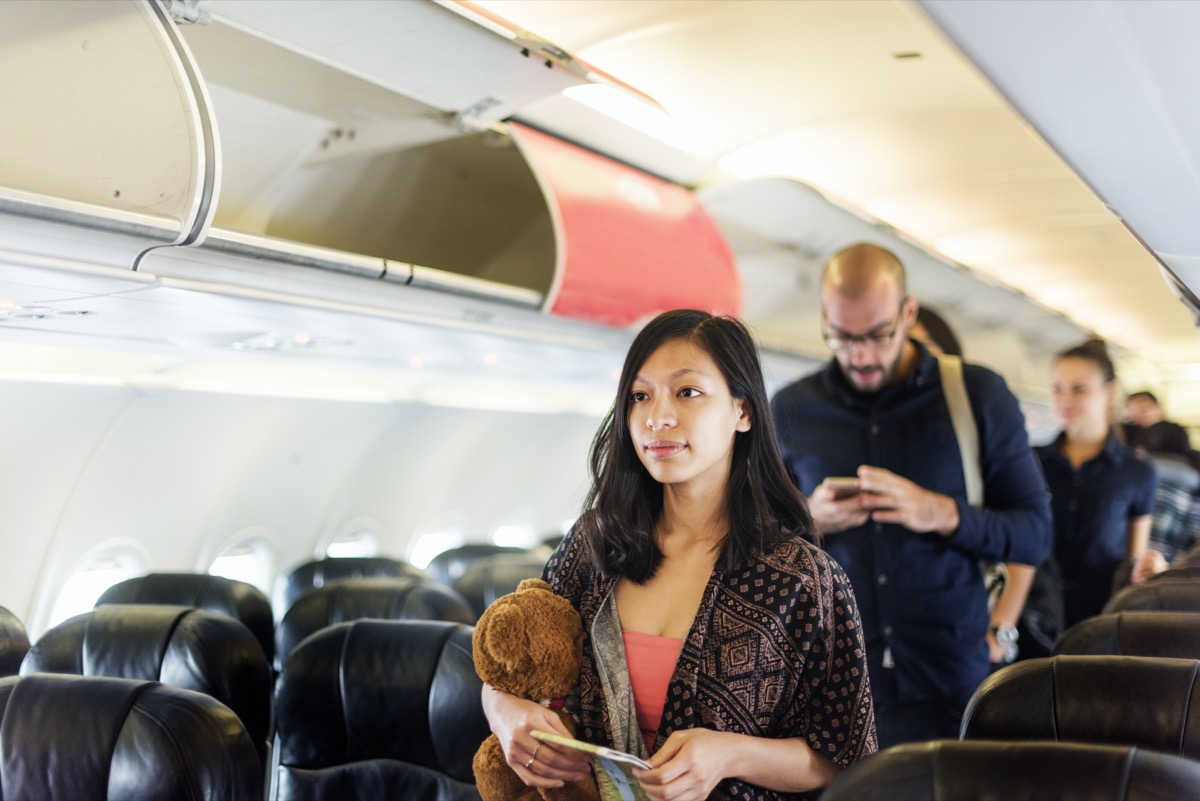
As you board, the flight attendants are not only checking your boarding passes, they're also sizing you up. They're paying attention to see who might be a troublemaker on a flight (say, an unruly bachelor or bachelorette party), and who might be able to assist in the event of an emergency. Ultimately, they're judging you for safety reasons.
9
The signals from your electronics can cause issues in the cockpit.
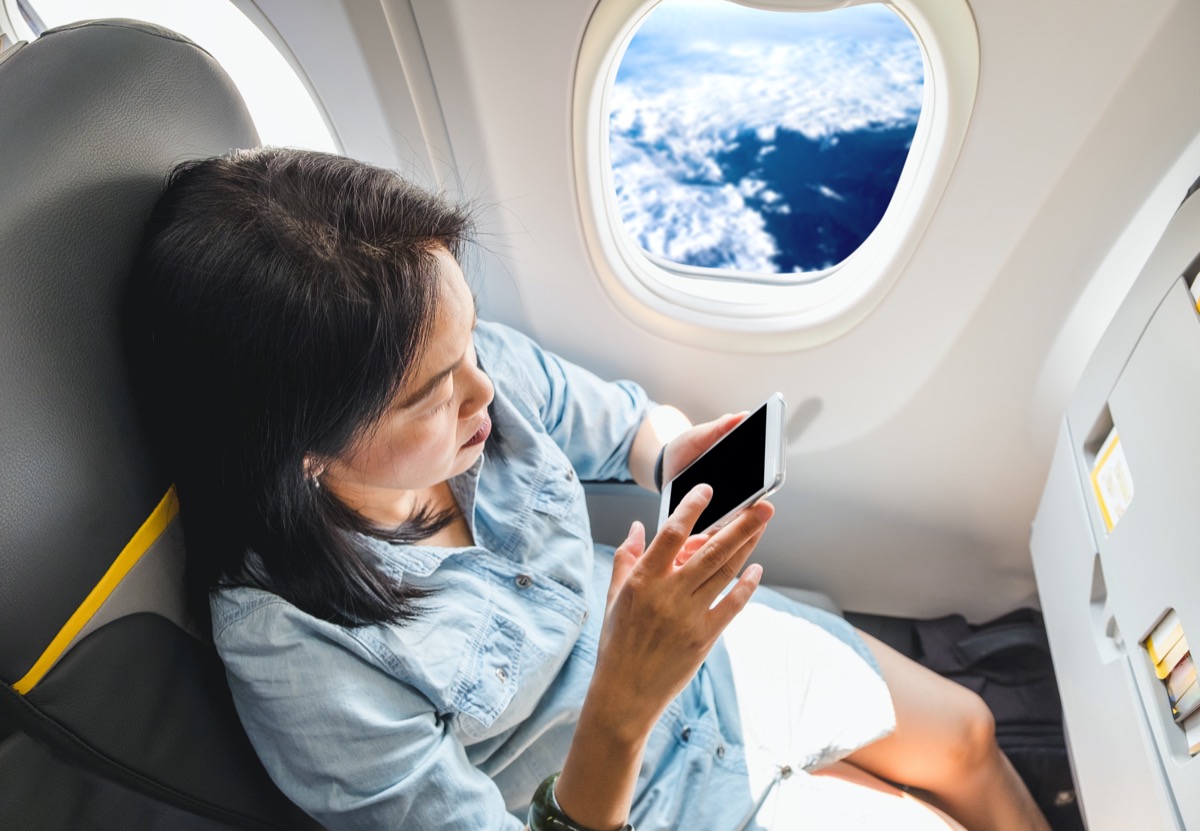
Forgetting to turn your phone on airplane mode isn't going to take down the entire plane, but it can actually interfere with your captain's communication with air traffic control (ATC). For instance, if a cabin full of passengers were to make calls during take-off, that could cause some problems. It's not a guarantee, but better safe than sorry, right?
10
The tray tables are dirty.
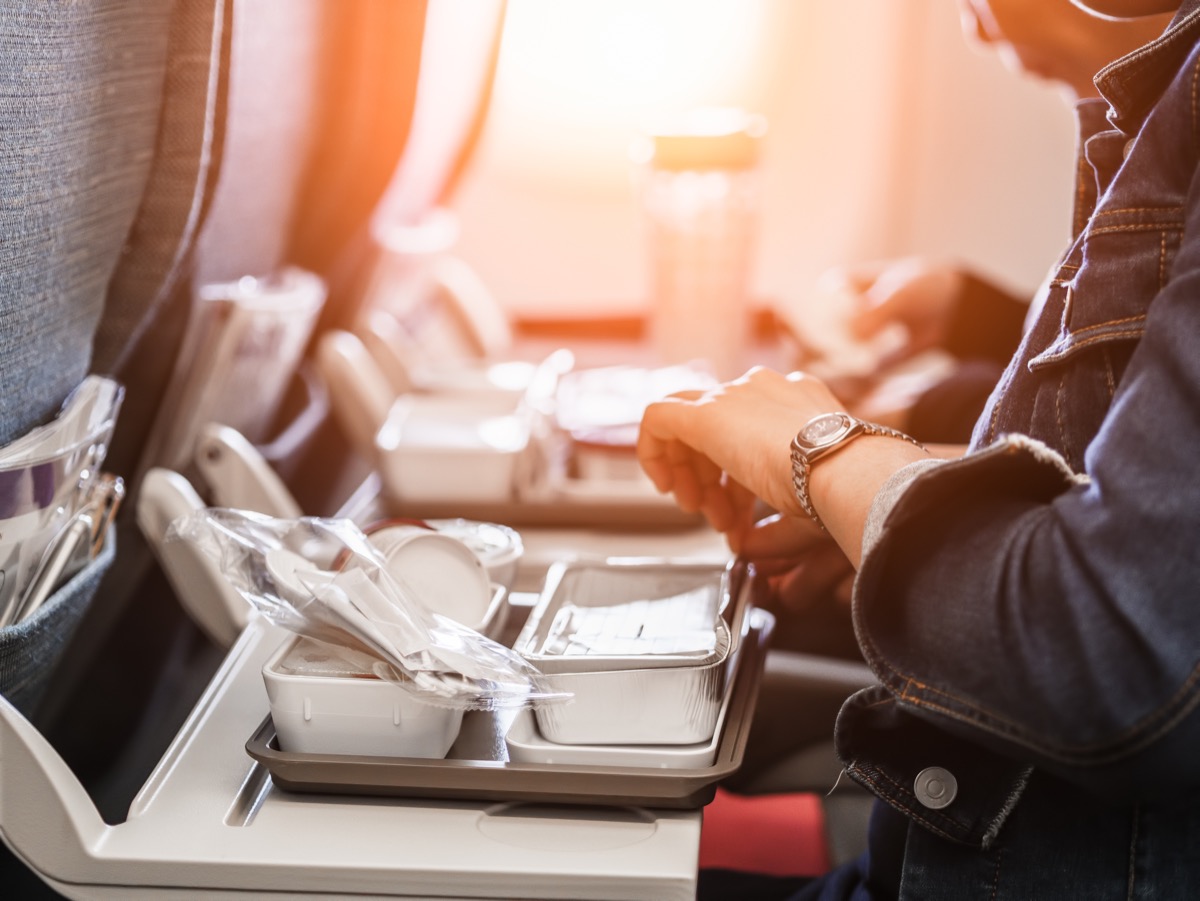
Airplanes are germy, there's no doubt about it. One of the grossest places onboard? That would be your tray table, which is not often cleaned between flights, despite frequent usage by passengers. Some flight attendants have reported seeing passengers change their babies' diapers right on the tray table, which a later passenger will then eat off of. Yikes…
11
The in-flight magazines are filthy.
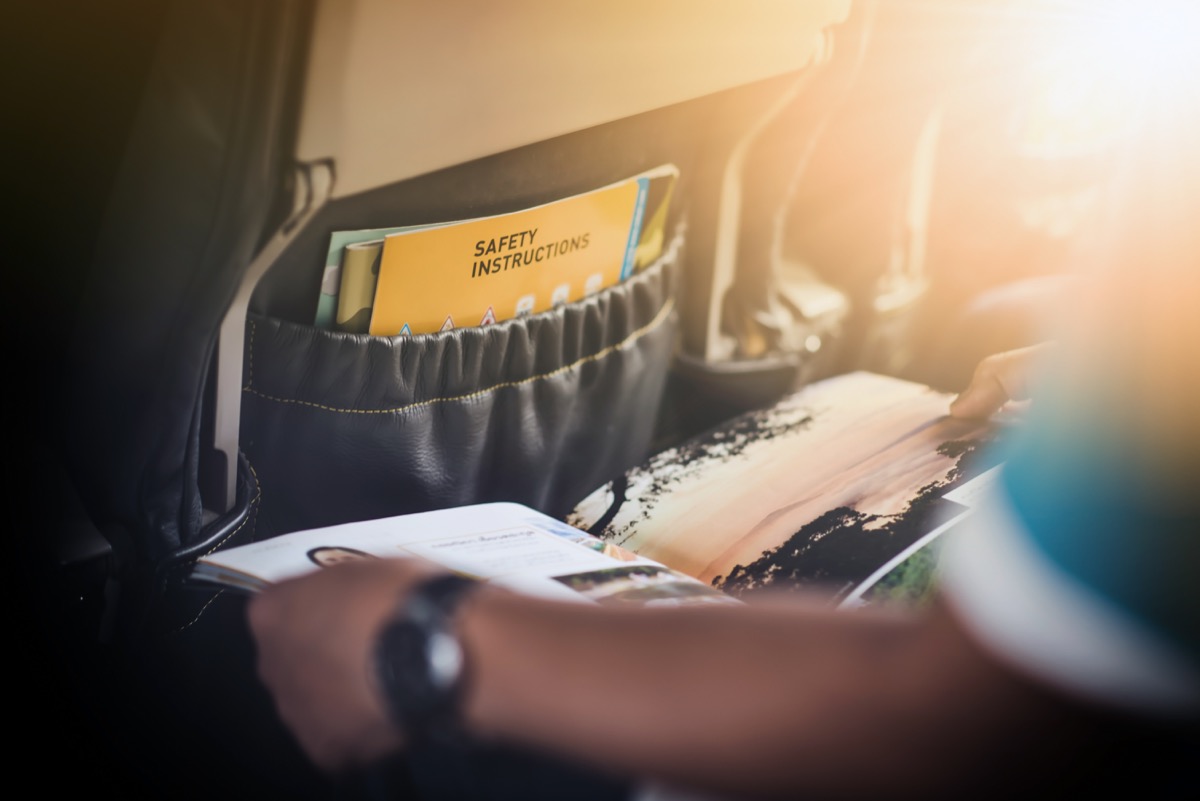
Why? Think about how many grimy hands are touching that thing. Plus, some passengers lick their fingers before flipping pages…
12
The seat-back pockets have germs inside.
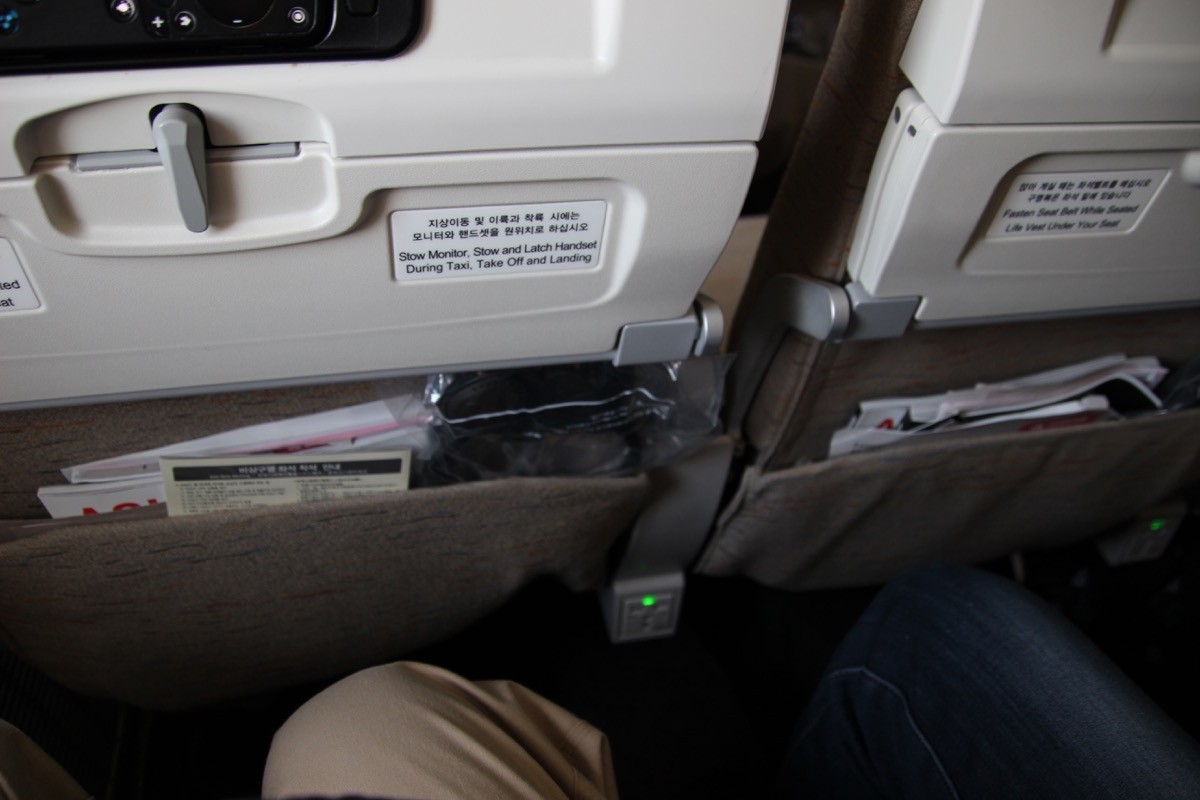
They're basically used as little trash receptacles by passengers, and they're hardly ever deep cleaned. Bottom line, avoid using them at all costs.
13
The headrests have bacteria.
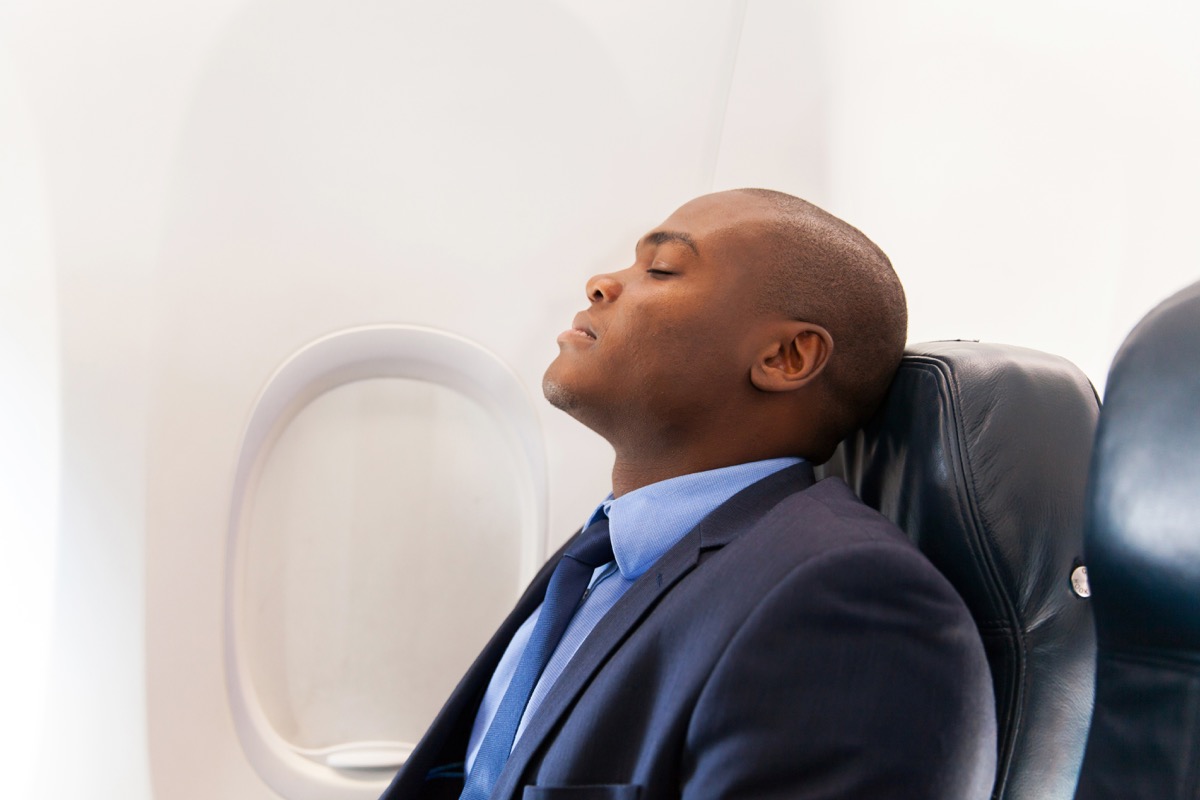
One study by the Canadian Broadcasting Corporation found the headrest to be the dirtiest spot on the plane, having the highest bacteria counts. Maybe wear a hoodie to protect your hair and face the next time you get to your seat.
14
The floors are not cleaned.
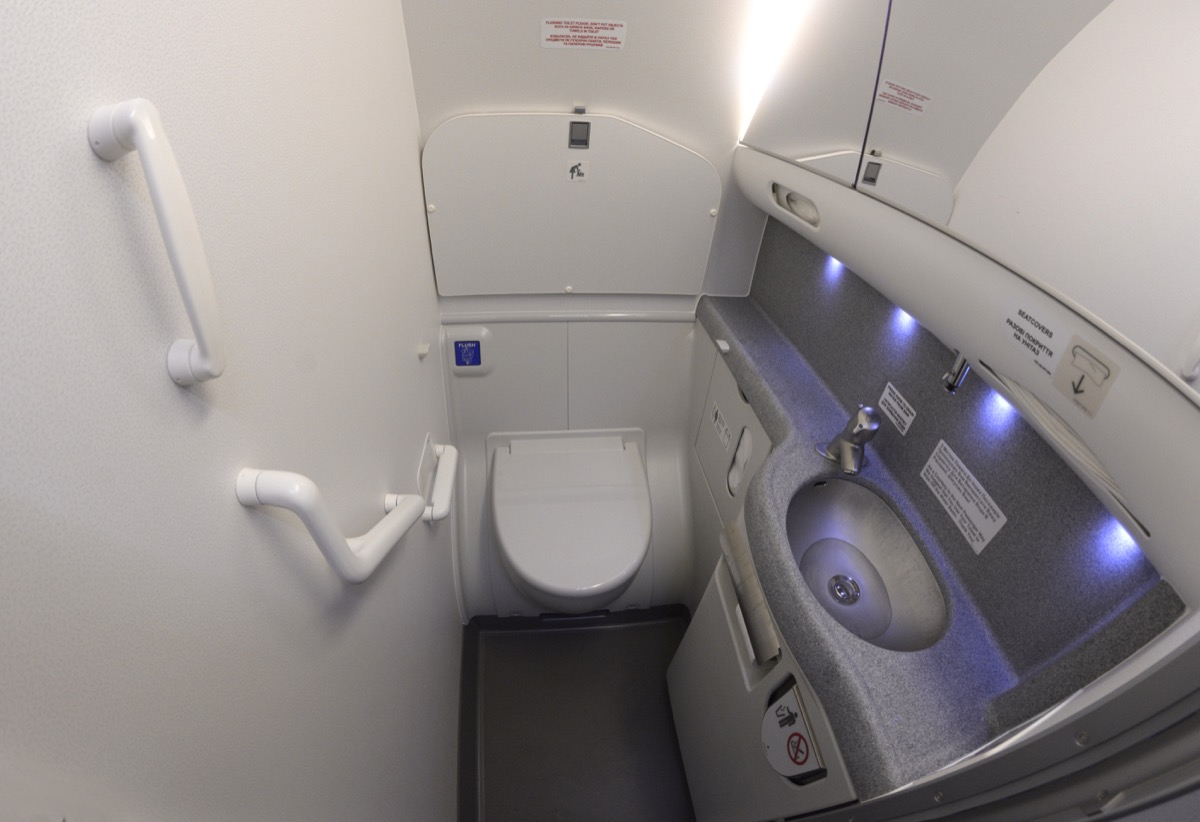
Listen, turbulence happens, and that means some people might miss the toilet in the lavatory. So there are some pretty nasty bodily fluids on the floor, which are then transferred onto the carpets along plane aisles as passengers walk around. So never, ever walk barefoot on a plane. Also, some people leave their dirty underwear in the aisle. True story.
15
The pillows and blankets might be reused.
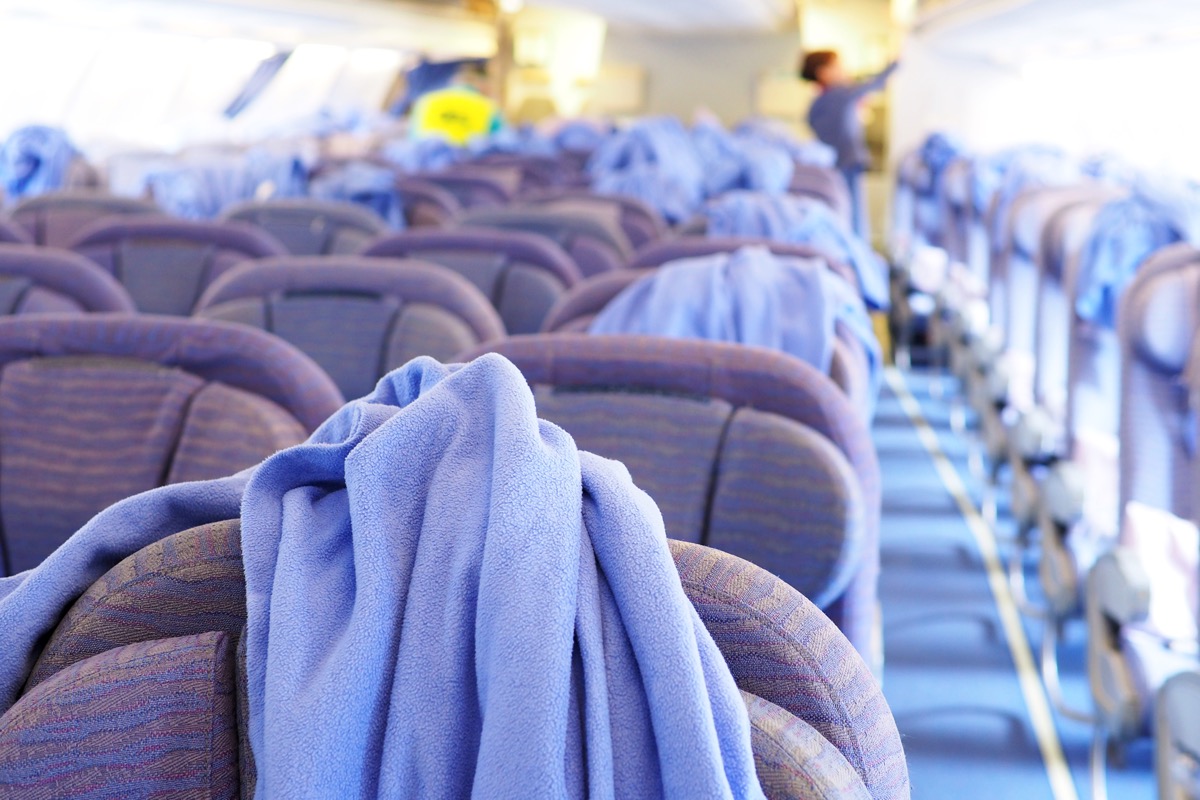
While most airlines launder their pillowcases and blankets between uses, not all of them do. Occasionally (particularly on budget airlines), blankets are simply folded up and stowed in the overhead bin in between flights.
16
The coffee might be unsanitary.
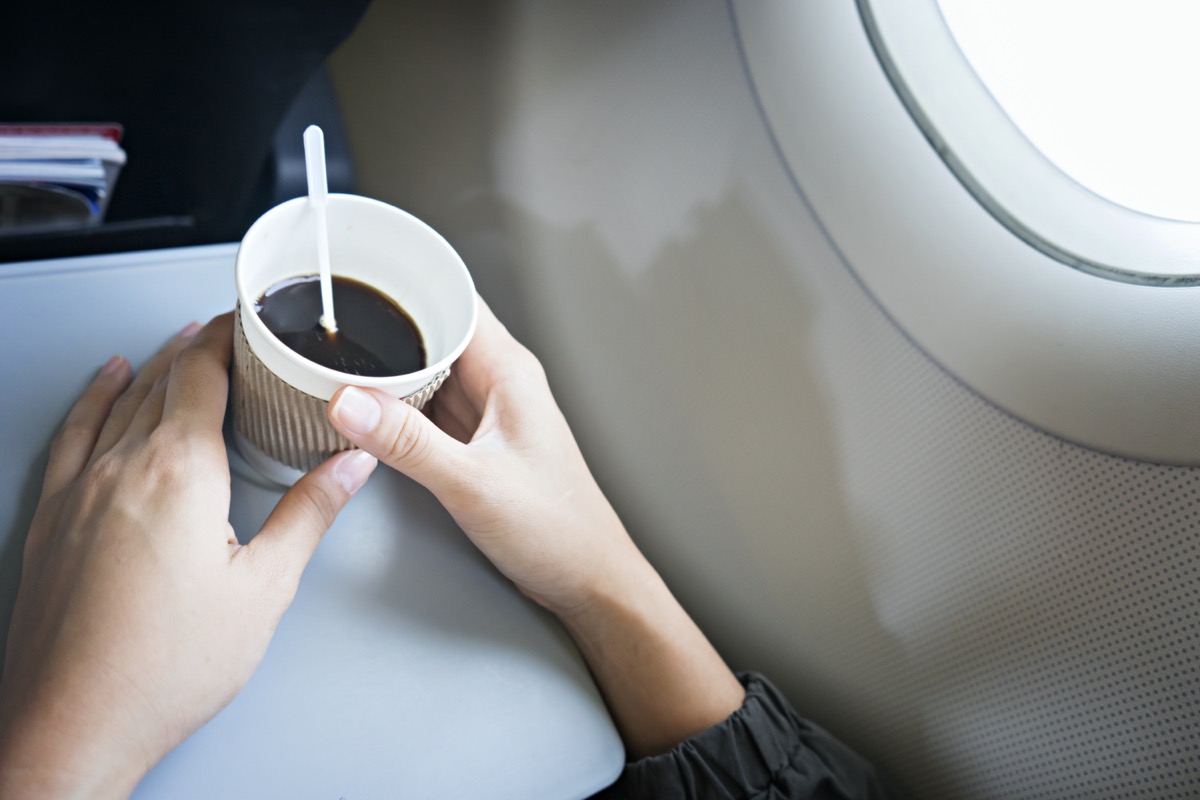
Coffee is made from the onboard potable water tanks… and those tanks are hardly ever cleaned, claims a flight attendant on Reddit. Gross.
17
It's illegal to be intoxicated on a plane.
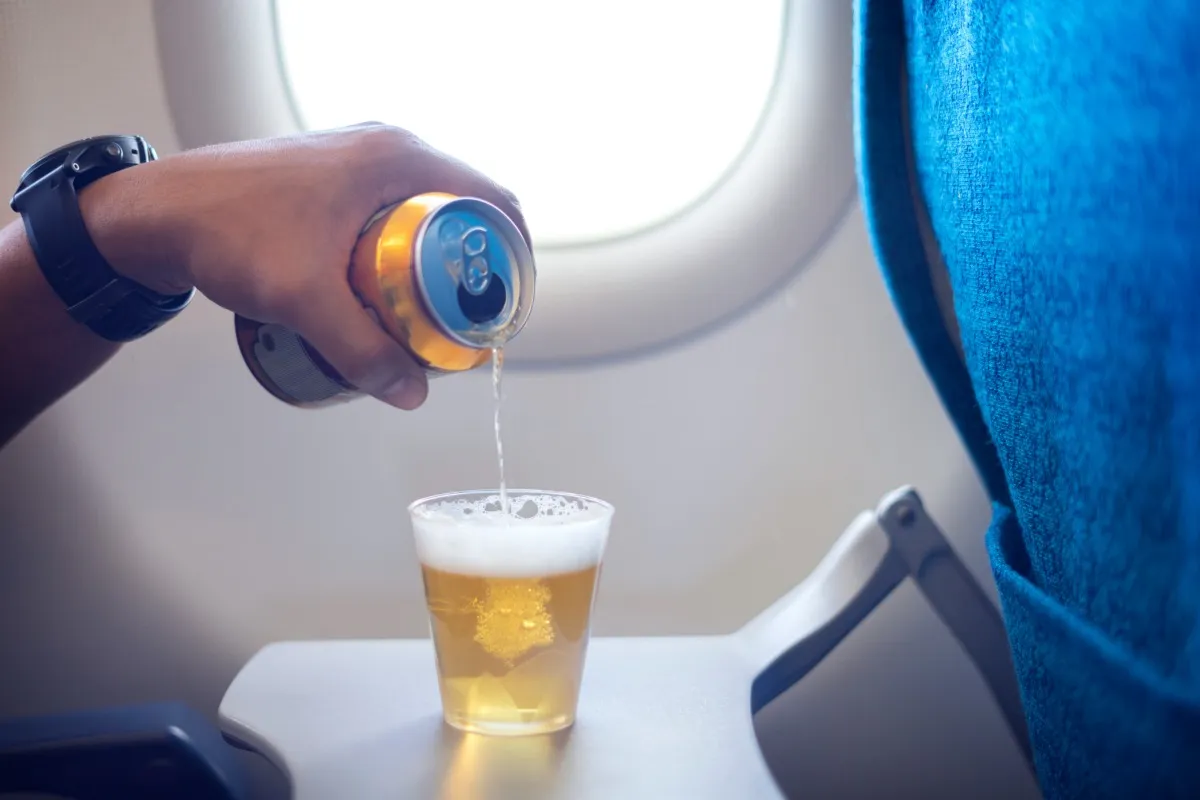
If you try to stumble on a plane while intoxicated, flight attendants are required by law to deny you boarding. Even during the flight, they'll monitor your consumption and make sure you're not overindulging. Remember, when you're at altitude, alcohol affects you differently.
And for more dirty details, check out the 17 Horrifying Myths About Hotel Rooms That Are 100 Percent True.

